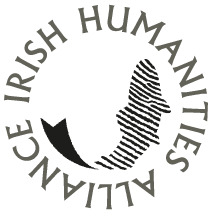Professor Daniel Carey, Director of the Moore Institute NUI Galway and IHA Board Member, recently called for a significant investment across the fields of the humanities and the social sciences ‘in order to address the effects of a crisis that threatens not only our physical health but also our social, political and economic wellbeing’. If one considers doctoral researchers of all disciplines as potential problem solvers for national and global challenges (such as the current Covid-19 crisis), this must include significant investment in Postgraduate Researchers.
The Postgraduate Research Task Group of AHECS (The Association of Higher Education Careers Services) were curious to find out if strategic investment by the Irish Government in applied research and development over the past twenty years, has led to a different research experience for Arts & Humanities and Social Science (AHSS) postgraduate researchers (PGRs) in comparison to their Science, Technology, Engineering and Mathematics (STEM) counterparts. The group (comprising representatives from DCU, MU, TCD, UCC, UCD and UL) examined anonymized data from The Irish Survey of Student Engagement for Postgraduate Research Students National Report 2019 through the prism of career and skills development. The paper which was issued in May ‘An Exploration Career & Skills Development among Arts, Humanities and Social Science Postgraduate Research Students in Ireland’provides a snapshot of Funding, Motivations, Career Aspirations and Development Opportunities of PGRs across Irish Higher Education Institutions (HEIs). The idea behind the study was (in addition to understanding the experiences and perceptions of the two groups) to inform best practice in professional skills training and development to support the employability of AHSS PGRs.
In terms of funding, the report shows that 30% of STEM PGRs were funded in comparison to 13% of AHSS (a 17% disparity) and only 7% of AHSS received a grant in comparison to STEM (15% disparity). Possible reasons for the difference could be that since the late 1990s in Ireland, large-scale funding awards were directed towards research and development in STEM. These awards led to increased numbers of researcher positions and contributed, either directly or through overheads, to increased budgets for equipment, travel and training. It is conceivable that those higher numbers of AHSS who are self-funded would not have budgets for travel to conferences where networking takes place. What we don’t know (as it was not asked in the survey) if those who were self-funded worked part-time to help support themselves.
There were notable disparities in Motivation for embarking on a research degree. 74% of AHSS PGRs reported to be driven by interest in their subject versus 64% of STEM. A possible reason for this disparity may be that large scale funding projects in STEM advertise more pre-defined PhD funded positions. In more recent times there has been increased investment in cohort training of STEM PhDs (such as SFI CRTs in ICT) which offer high bursaries with professional training in Ireland. With less advertised funded positions, there is a general expectation that humanities students themselves conceptualise and lead their own research projects. The combination of AHSS PGRs driven by motivation and more likely to self fund, paints a strong picture of creative committed individuals with strong critical and thinking and time management skills. The first question is do AHSS Researchers recognise the value of their skills which are ranked in the top 5 most sought after attributes listed by employers over the past number of years?The second question is do they clearly articulate the transferability of those essential skills to prospective employers? The British Academy in 2017 in its paper ‘The Right Skills: Celebrating Skills in the Arts, Humanities and Social Sciences’ states that Humanities doctoral students do not realise how transferable their skills are.


Published: 19 Aug 2020

